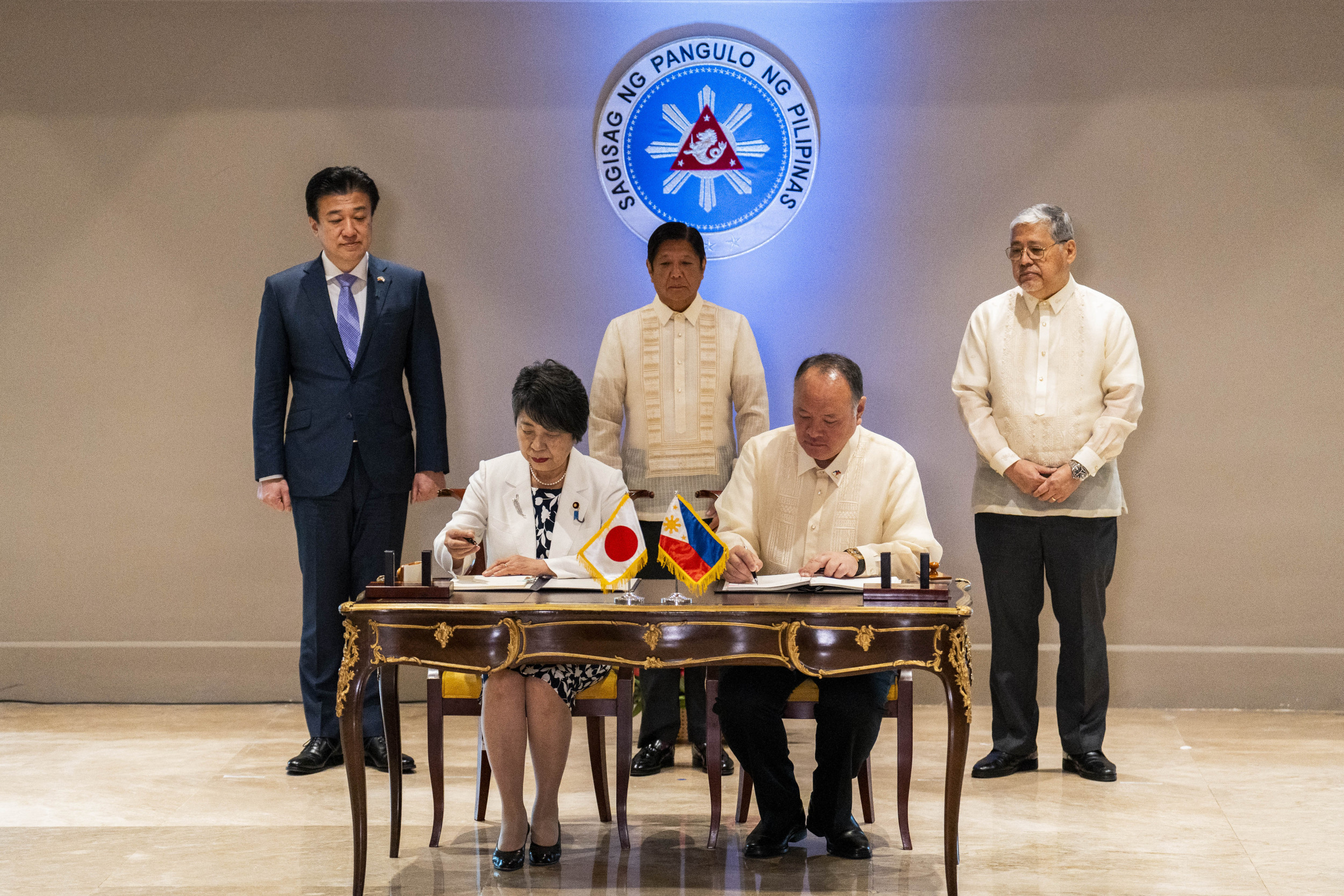Japan and the Philippines signed historic defense pacts on July 8, 2024, allowing for greater military cooperation between the two countries amid shared concerns over China's growing assertiveness in the East and South China Seas. The Reciprocal Access Agreement (RAA) signed by Japanese Foreign Minister Yoko Kamikawa and Philippine Defense Secretary Gilberto Teodoro provides a legal framework for joint military exercises, training, and operations between the two nations.
The signing of this agreement marks the first time Japan has pursued such an arrangement with a country in Asia. It comes after Chinese coast guard personnel rammed and destroyed two Philippine navy supply vessels at disputed Second Thomas Shoal on June 17, injuring several Filipino sailors and seizing seven navy rifles.
Both Japan and the Philippines have expressed concern over China's actions in the South China Sea, a key global trade route. Japan is doubling its defense spending in a five-year period to bolster its military power. The country has also signed similar accords with Australia and Britain for defense cooperation.
The RAA will enable Japan to participate as a full member in the annual Balikatan drills between the United States and the Philippines, which have been ongoing since 1982. In addition, Japanese troops will be allowed to enter Philippine military bases for joint exercises and training.
Japan's defense budget is being undermined by the plunging value of its currency, the yen. The purchasing power of Japan's defense budget has been reduced by approximately 30% due to the yen's diminishing value. Despite this challenge, Prime Minister Fumio Kishida announced a new national security strategy in 2022 that would more than double the defense budget over five years, equivalent to around $319 billion.
The escalating tensions between Manila and Beijing in the South China Sea have led Japan to strengthen its military ties with the Philippines. The RAA is seen as a counterweight to China's growing assertiveness in the region.





